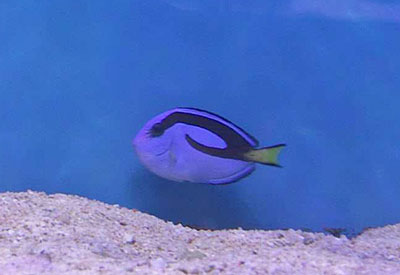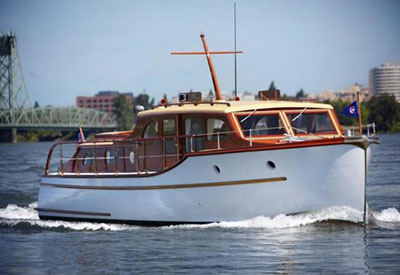Don’t Buy a Real Blue Tang if You Love Finding Dory, Experts Advise

July 11, 2016
Animal-rights advocates fear that the cute talking fish in the animated movie sequel Finding Dory will send parents flooding into pet stores to buy their kids the real tropical fish that inspired the character.
Unlike the Clownfish that hooked audiences in Finding Nemo, the Blue Tang that stars in Finding Dory doesn’t do well in captivity, and is captured in a way that can damage its reef habitat, according to the Vancouver Humane Society.
“In 2003, when Finding Nemo came out, there was a surge in Clownfish capture and sales,” said Emily Pickett, the society’s program co-ordinator. “it seems that is continuing to be an issue, but Blue Tang are a very unsuitable species for home aquariums.”
A release from the U.S. Humane Society said the 2003 run on the capture and purchase of Clownfish as pets depleted the numbers in the wild and damaged their habitat.
Finding Dory’s animated Blue Tang, voiced by Ellen DeGeneres, lured family audiences to US$136 million in North American ticket sales, the largest opening for an animated feature.
Pickett said fishermen who capture the Blue Tang in the wild often drop cyanide in the water to stun the fish, a method that poses a hazard for the fish’s coral habitat. As well, the Blue Tang haven’t been successfully bred in captivity, so the ones sold in pet stores are all taken from the wild, she said.
“Selling them really creates a threat to wild populations,” Pickett said. “Also they don’t eat typical fish food, they feed off marine algae, off of coral reefs.”
Meanwhile, King Ed Pet Centre in Burnaby is expecting a shipment of between 80 and 120 Blue Tangs this week, but co-owner Kwang Lee said those fish will be going to tropical fish hobbyists, at $89.99 per fish.
“When it’s a first-time customer, we can tell right away,” Lee said, adding he wouldn’t encourage someone new to tropical salt-water fish to buy a Blue Tang. “I don’t want to hear from you, that you buy a fish, take it home and within two or three days it dies.”
Lee Newman, tropical waters curator at the Vancouver Aquarium, also advised against parents buying a Blue Tang for their young Finding Dory fans.
“I’m hoping the movie doesn’t generate that sort of interest, and I’m hoping that with the price tag and sound advice from the various retailers, cooler heads will prevail,” Newman said.
But Blue Tang populations aren’t under threat in the wild, he added. When the fish spawn, the larval fish drift across the sea with the plankton, he said. “It has such a wide distribution, they’re found in quite a large area.”
Original story courtesy vancouversun.com gschaefer@postmedia.com
For more photos and video visit: http://vancouversun.com/news/local-news/dont-buy-a-real-blue-tang-if-you-love-finding-dory-experts-advise




























